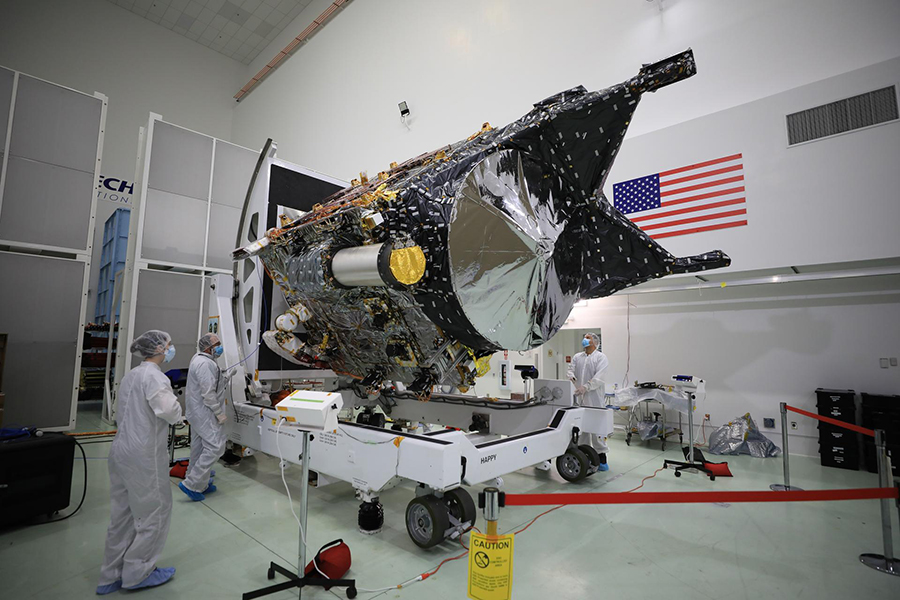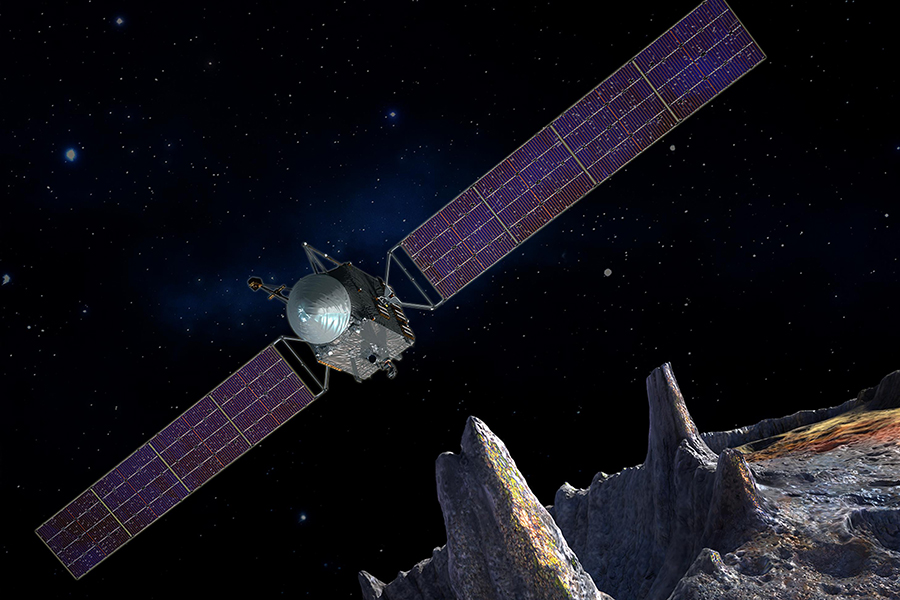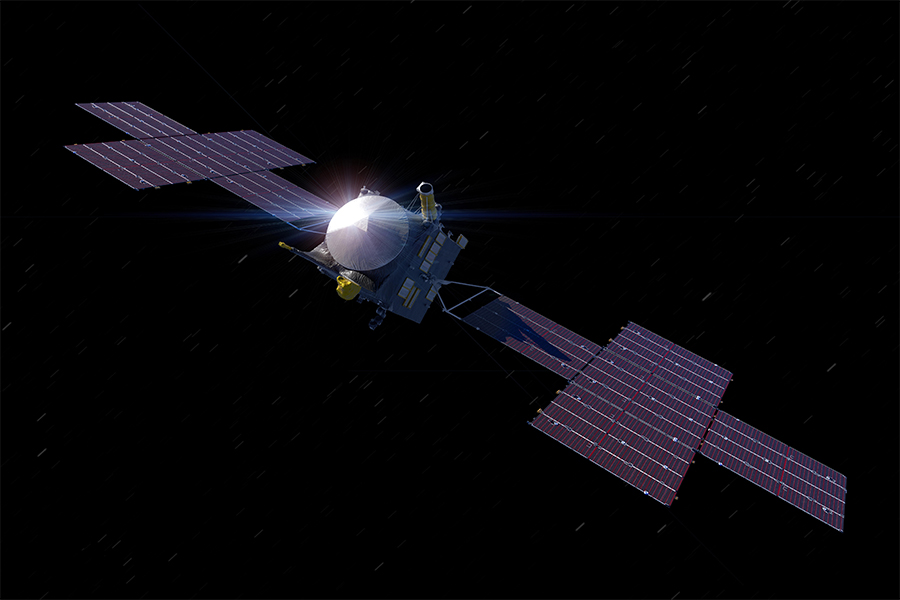An exciting opportunity at Kennedy Space Center is fast approaching!
On October 12, 2023, NASA’s Psyche spacecraft is scheduled to launch aboard a SpaceX Falcon Heavy rocket. This mission is a journey to a unique metal-rich asteroid (also named Psyche) orbiting the Sun between Mars and Jupiter that appears to be the exposed nickel-iron core of an early planet, and one of the building blocks of our solar system!
Scientists believe the presence of metallic cores lie far below the planet’s rocky mantles and crusts and are unreachable. Since it’s impossible to see or measure Earth’s core directly, exploring Psyche will provide a unique window into the violent history of collisions and growth that created terrestrial planets.
If all goes according to plan, then Psyche’s gravity will capture the spacecraft in late July 2029, then begin its prime mission the following August. From there, it will spend about two years orbiting the asteroid to take pictures, map the surface and collect data!

What do we know about Psyche (the asteroid) so far?
Well, we know that it has an irregular shape. According to NASA, if the asteroid were to be sliced in half horizontally at the equator, it would measure 173 miles (280 kilometers) across at its widest point and 144 (232 kilometers) long, and has a surface area of about 64,000 square miles!
Psyche is likely a mixture of rock and metal, and metal makes up between 30% and 60% of its volume.


Visitor complex guests can view NASA’s Psyche launch from the Atlantis North Lawn, about 6.7 miles (11.4 kilometers) from the launch pad.
The viewing area is included with admission to Kennedy Space Center Visitor Complex. Launch audio, video and communicator commentary will be available.
Purchase your tickets to Kennedy Space Center Visitor Complex!
Purchase Tickets




